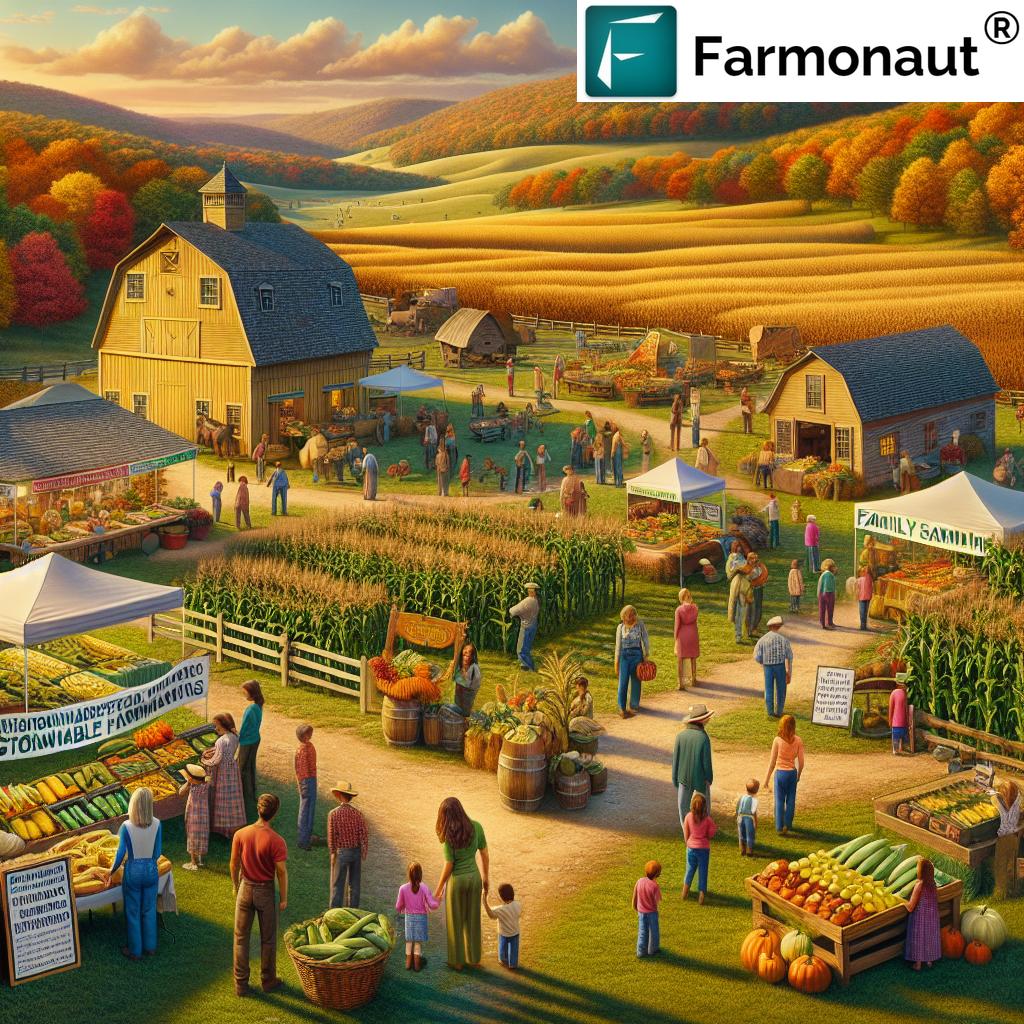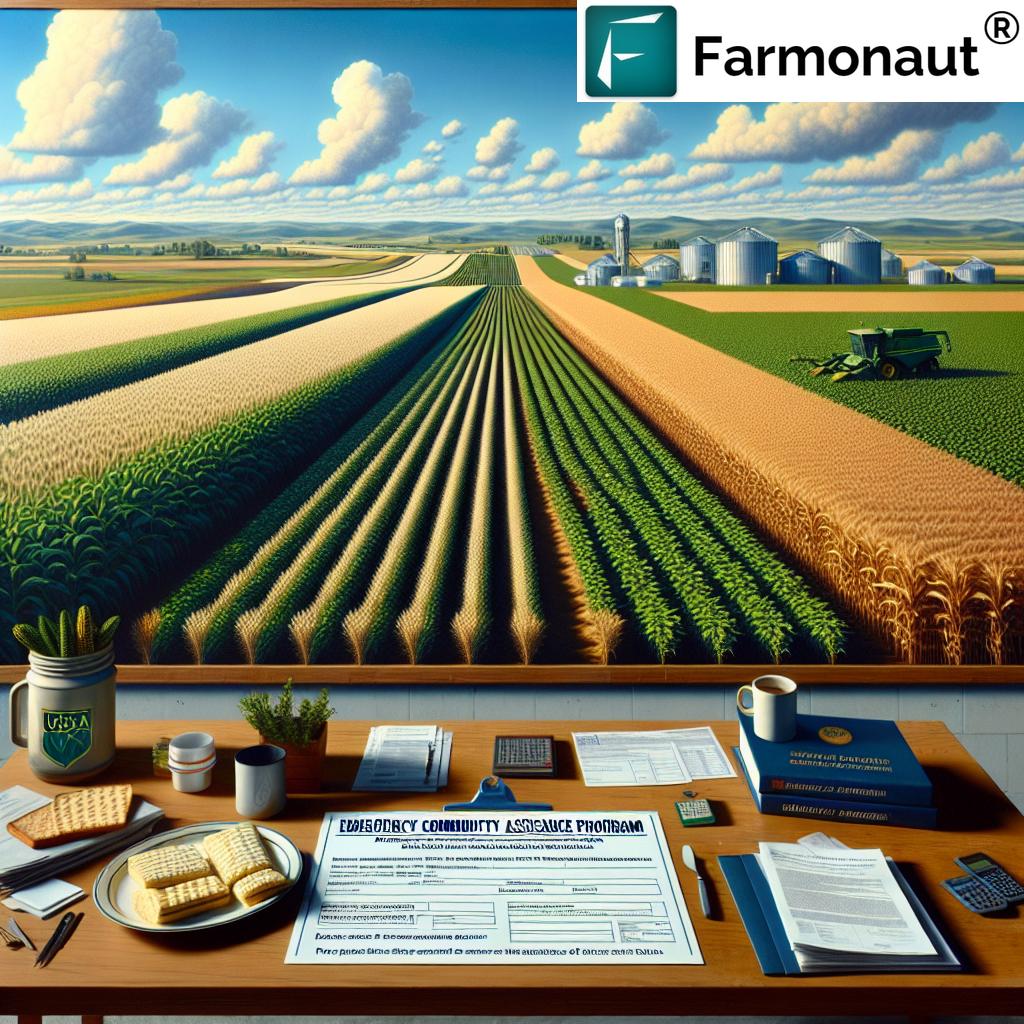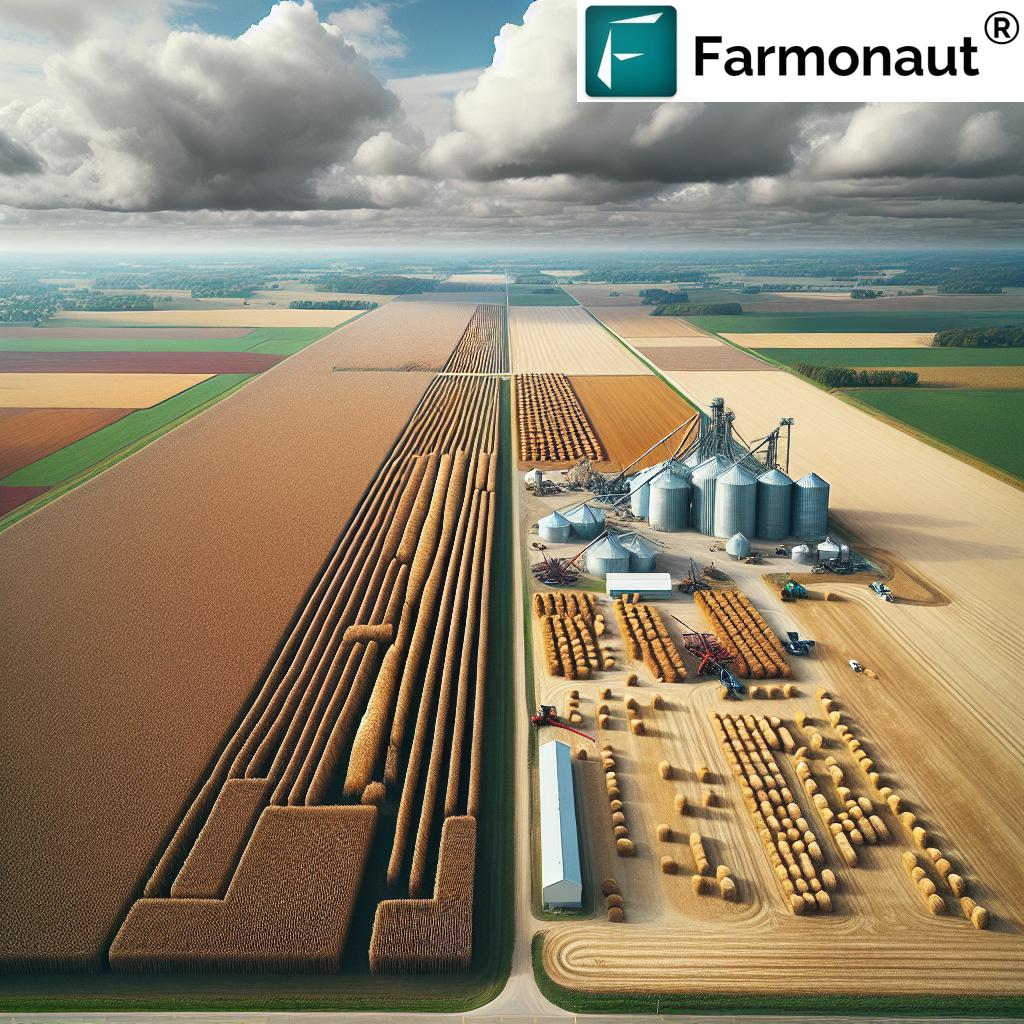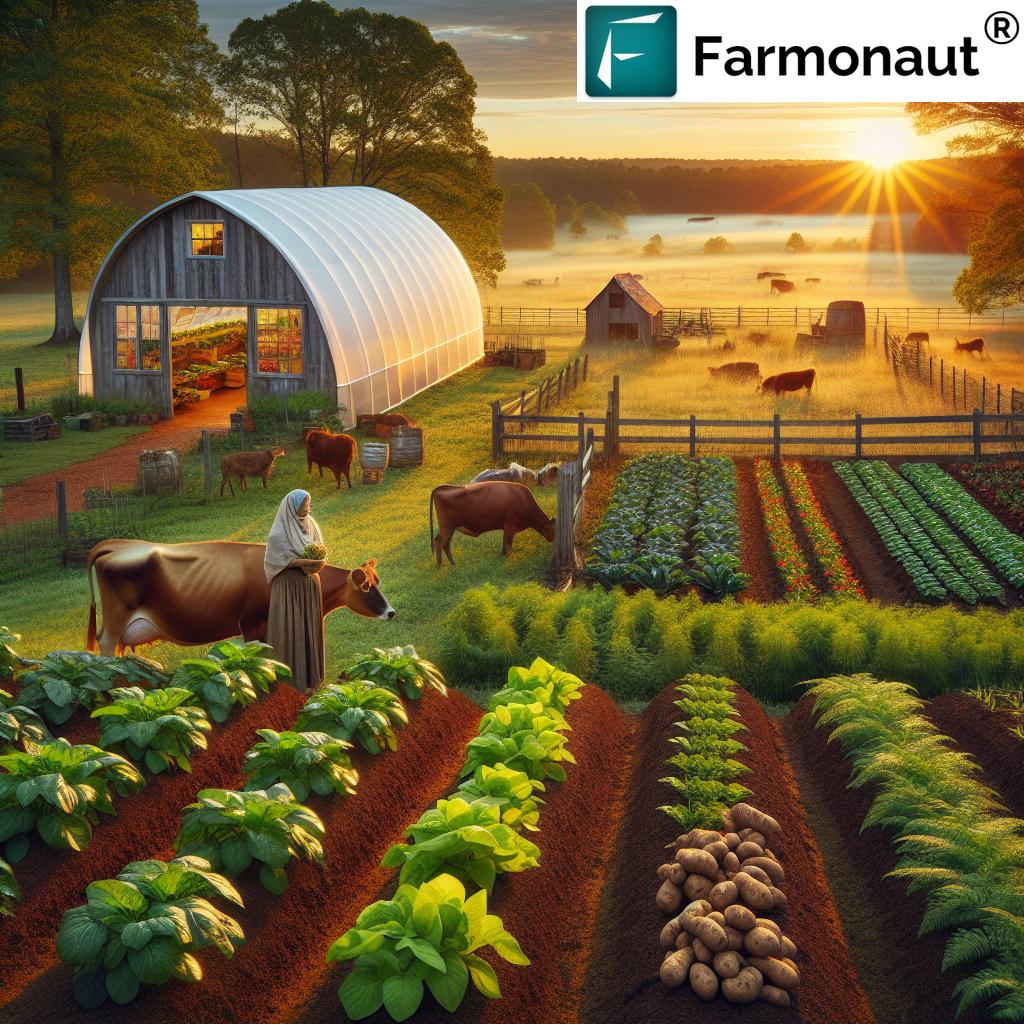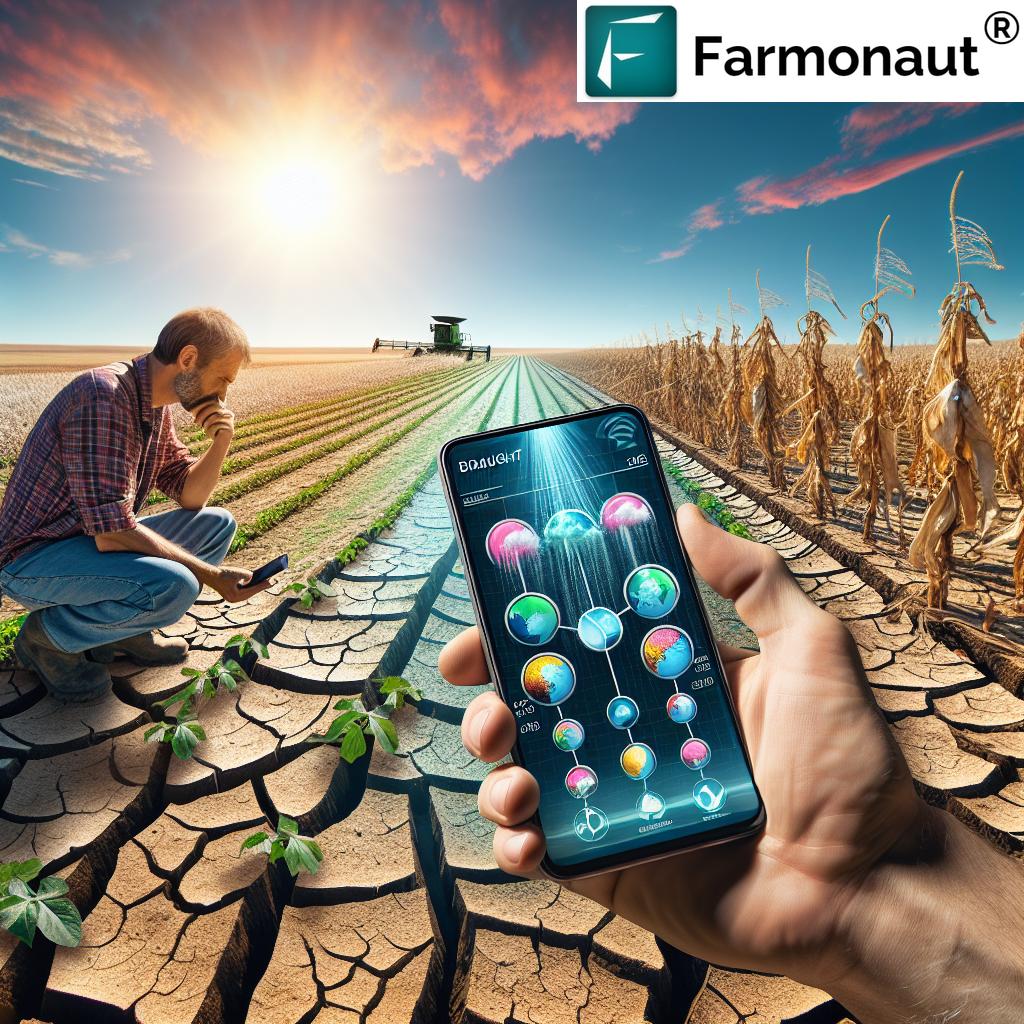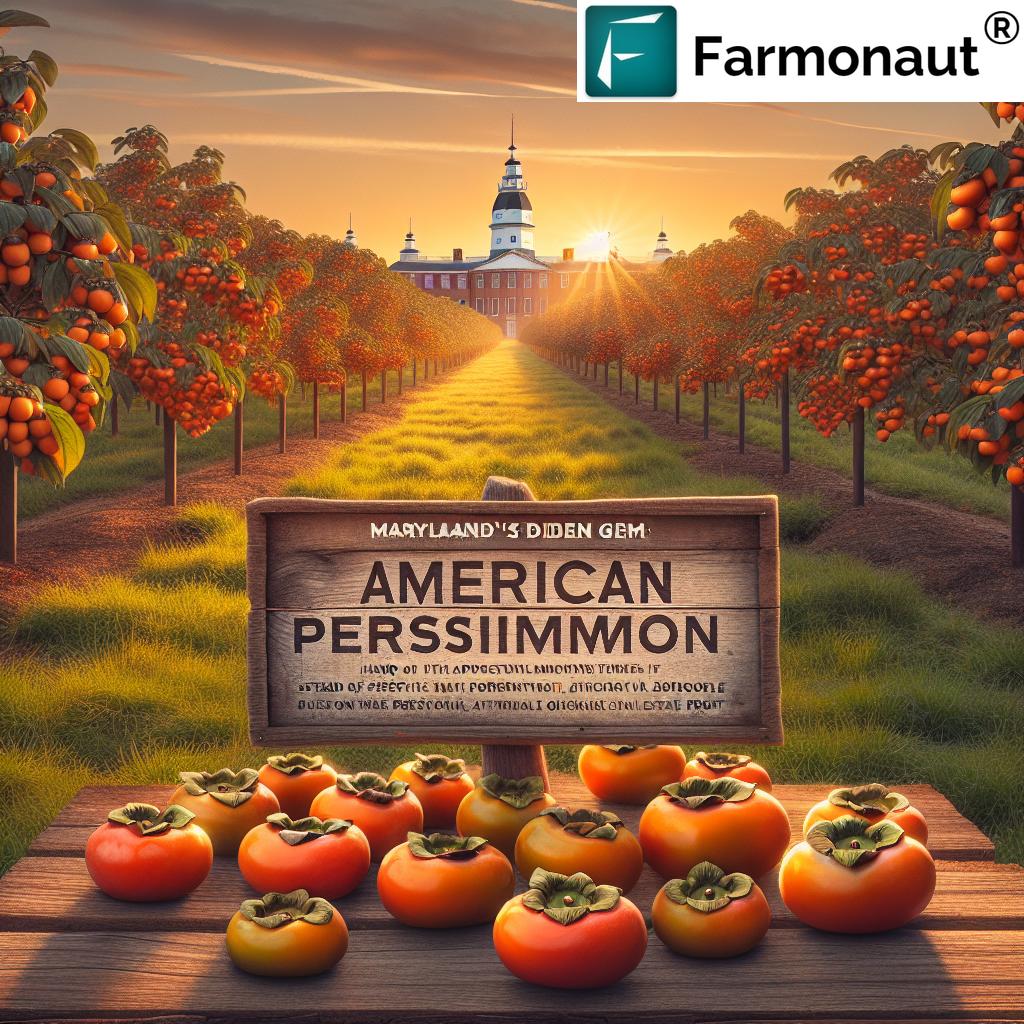Celebrating Harvest: 7 Shocking Virginia Traditions!
Table of Contents
- Introduction: The Essence of Harvest Celebrations
- Historical Significance of Harvest Festivals
- 7 Shocking Virginia Harvest Traditions
- Cultural Harvest Rituals: Insights from Around the World
- Modern Community Harvest Celebrations in Virginia, USA
- Sustainable Agricultural Practices & Environmental Stewardship in Farming
- Farmonaut: Powering Sustainable Agriculture for the Next Generation
- Comparative Traditions & Sustainability Table (Virginia)
- Harvest Festivals FAQ
- Conclusion: Bridging Past and Future Through Celebration
Introduction: The Essence of Harvest Celebrations
Every autumn, across the rolling fields of Virginia, harvest festivals light up our communities with color, music, and gratitude. For millennia, celebrations like these have united us in honoring the earth’s abundance, the hard work of our farmers, and the completion of another cycle of sowing, nurturing, and reaping. These ancient traditions are evolving—today, they intertwine our family farming traditions with new commitments to sustainable agricultural practices and environmental stewardship in farming. In this definitive guide, we’ll explore seven shocking Virginia harvest traditions, offering rich perspectives that bridge the history of harvest festivals and modern vibrancy.
Let’s wander through the past, present, and future of community harvest celebrations, discover their role in sustainable agriculture, and see how innovations like Farmonaut are revolutionizing the way we farm, monitor, and celebrate our most precious resource—our land.
Historical Significance of Harvest Festivals
To fully understand Virginia’s community harvest celebrations, we must journey back in time. Harvest festivals have deep roots in the cycles of nature, marking the moments when ancient societies paused to thank their deities and the earth for fruitful seasons.
Harvest in Mesopotamia: The Akitu
Our earliest records come from Mesopotamia, where the Akitu festival heralded each new year at the close of the agricultural cycle. Offerings to Marduk and Ishtar symbolized not just gratitude for abundant lands but the belief that renewal and stewardship were inextricably linked. These ancient agricultural practices are echoed today in modern celebrations of renewal, cooperative spirit, and fertility of the soil.
The Nile’s Gift: Egyptians and the Bounty of the Land
In ancient Egypt, the flooding of the Nile transformed barren ground into fertile lands. The Egyptians honored Hapi, god of the Nile’s inundation, through rituals, feasting, and gratitude. These ceremonies—rooted in both necessity and reverence—mirrored the importance of sustainable agricultural practices and environmental awareness long before these terms entered modern vocabulary.
- Harvest festivals represented communal survival—failure meant hunger and threat.
- Rituals fostered community unity, shared purpose, and gratitude for the growing season.
- They featured workshops (in form of teaching and oral tradition) that preserved vital farming wisdom.
7 Shocking Virginia Harvest Traditions
Virginia, USA is home to some of the most unique and vibrant harvest festivals in North America. Here, our communities blend ancient harvest traditions with innovative, eco-friendly approaches that support local agriculture, foster family farming traditions, and boost community spirit. Let’s uncover the shocking history and surprising diversity behind seven Virginia traditions.
-
Hay Bale Decorating Extravaganza
Every fall, communities gather to transform simple hay bales into imaginative art installations. Initiatives like the Virginia Farm Bureau Federation’s annual contest see schools, families, and local businesses working together to design hay animals, tractors, and whimsical scenes—all using materials from the land. This tradition not only showcases talent, but highlights sustainable agricultural practices by promoting local farm resources and recycled materials in the art. Entries are judged on creativity, sustainability, and impact.
-
Pumpkin Roll Derby
Entire Virginia towns—especially in the Shenandoah Valley—compete in exhilarating pumpkin rolling races. Beyond sheer entertainment, these events reinforce the value of seasonal produce and encourage the use of organic, untreated pumpkins exclusively grown by local farmers. Unused pumpkins are often composted or donated for animal feed, closing the agricultural cycle working in harmony with the land.
-
Apple Butter Boil-Downs
Regions like the Blue Ridge Mountains are famous for their massive open-fire kettles, in which whole communities collaborate to stir and simmer apples into thick, delicious apple butter. The event doubles as a living workshop—elders pass down canning techniques, stories, and secret recipes. Nourishment from the land, zero waste ethos, and intergenerational learning meet in one fragrant tradition.
-
Farm-to-Table Community Feasts
These spectacular meals take place right on the farm, under harvest moons or in rustic barns, where guests dine on the fall’s bounty. Chefs and families alike highlight organic produce, grass-fed meats, and heritage varieties straight from Virginia soil. Many festivals require every ingredient to be produced within a 50-mile radius, reinforcing our commitment to sustainable agricultural practices and supporting family farming traditions.
-
Seasonal Workshops on Sustainable Farming
Over 60% of Virginia harvest festivals now feature practical “local farming workshops Virginia” focused on everything from soil health and carbon footprinting to crop rotation, seed saving, and regenerative agriculture. These workshops foster environmental stewardship in farming and empower both experienced farmers and newcomers with cutting-edge, sustainable knowledge.
-
Ancestor Storytelling Nights
Many communities host candlelit storytelling sessions, where elders and children recount farm struggles, pioneer tales, and the legacy of their ancestors in cultivating these lands. This oral tradition reinforces the value of working with the cycles of nature and connects every generation to Virginia’s history of harvest festivals.
-
Seed & Produce Swaps
Instead of purely commercial exchanges, these events prioritize bartering and sharing heirloom seeds, root vegetables, and harvest surpluses. Seed swaps encourage biodiversity, support local food webs, and preserve varieties unique to Virginia soil. Swaps often include “garden advisory” booths powered by modern farm management tech, helping new growers make sustainable choices.
Comparative Traditions & Sustainability Table
| Tradition Name | Location in Virginia | Estimated Year of Origin | Estimated Festival Attendance | Main Sustainable Practice Highlighted | Environmental Impact (CO₂ Reduction / Resource Savings) |
|---|---|---|---|---|---|
| Hay Bale Decorating Extravaganza | Statewide; especially Shenandoah Valley | 1985 | ~4,500 | Recycled/Local Agrarian Materials | 15 tons of materials reused annually |
| Pumpkin Roll Derby | Central and Western Virginia | 1920s | ~2,000 | Composting & Local, Organic Pumpkin Sourcing | ~12 metric tons food waste diverted yearly |
| Apple Butter Boil-Downs | Blue Ridge, Western Virginia | late 1800s | 1,100+ | Zero Waste, Heirloom Apple Varieties | 10,000+ lbs local apples used, 2,000+ jars reused |
| Farm-to-Table Community Feast | Central & Northern VA farms | 2004 | Up to 900 | 100% Local Sourcing, Minimal Food Miles | Estimated 18% CO₂ reduction per event |
| Sustainable Farming Workshops | Statewide at festivals | 2010 | ~3,600 | Carbon Footprinting, Soil Health, Water Saving | Long-term regional reduction in agrochemicals |
| Ancestor Storytelling Nights | Appalachian Highlands | Pre-1800 | ~650 | Oral Tradition/Transgenerational Knowledge | Indirect, but boosts sustainable knowledge transfer |
| Seed & Produce Swaps | Eastern Virginia | 1990 | ~1,800 | Biodiversity & Reduction in Commercial Inputs | 50+ rare varieties maintained annually |
Cultural Harvest Rituals: Insights from Around the World
While Virginia shines in its own right, our cultural harvest rituals connect us to a global family that has celebrated abundance for thousands of years. Let’s take inspiration from rich traditions that illuminate what it means to honor the earth.
- Celtic Druids (Europe): Bonfire rituals with singing and dancing, celebrating Earth deities and ensuring future fertility ([source](https://meaningfulmoon.com/ancient-harvest-rituals-a-celebration-of-natures-bounty/?utm_source=openai)).
- Native American Tribes: The Hopi Tribe’s Snake Dance brings rain and fertility, while the Iroquois Confederacy’s Green Corn Ceremony promotes unity and gratitude ([source](https://meaningfulmoon.com/ancient-harvest-rituals-a-celebration-of-natures-bounty/?utm_source=openai)).
- China: The Mid-Autumn Festival features mooncakes and lanterns, blending family reunions with thanksgiving for a successful harvest ([source](https://thesherman.org/2022/11/01/celebrating-the-harvest-around-the-world/?utm_source=openai)).
- South Korea (Chuseok): Large family reunions marked by rice cakes, ancestor veneration, and gratitude-filled feasts ([source](https://thesherman.org/2022/11/01/celebrating-the-harvest-around-the-world/?utm_source=openai)).
- West Africa (New Yam Festivals): Dazzling masquerades, offerings to ancestors, and rituals celebrating fertile soil ([source](https://thesherman.org/2022/11/01/celebrating-the-harvest-around-the-world/?utm_source=openai)).
Through millennia of celebration, gratitude and stewardship of our lands remain a universal language, building enduring connections to our ancestors and each other.
Modern Community Harvest Celebrations in Virginia, USA
Today, modern harvest festival activities in Virginia build on history while addressing contemporary needs. Our local festivities have expanded beyond feasting to become annual touchstones of civic pride, education, and ecological action. Let’s see how:
- Hay Bale Art Competitions: These inspire creativity and promote recycling within the agricultural sector, giving new life to post-harvest resources.
- Sustainable Agriculture Workshops: Interactive “workshops” at these festivals cover crucial topics such as crop rotation, integrated pest management, climate-resilient seeds, and innovations like carbon footprinting.
- Farm Tours and Open Houses: Farms open their doors, allowing guests to learn about organic practices, see real-time crop-health monitoring in action, and join field demonstrations.
- Hands-on Kid Zones: Interactive stations where children can plant seeds, learn about soil moisture, see demonstrations on sustainable irrigation, and appreciate the work of local farmers.
- Farmer-Focused Tech Demonstrations: Many festivals now feature technology corners where platforms like Farmonaut explain how satellite imaging, blockchain traceability, and AI farm advisory tools are solving modern challenges, ensuring that future cycles remain abundant for all.
Sustainable Agricultural Practices & Environmental Stewardship in Farming
Modern Virginia harvest festivals are potent vehicles for educating about eco-friendly agricultural practices. Our events increasingly spotlight:
- Zero Waste Initiatives: Compost bins at festival grounds, carbon tracking competitions, and locally sourced food vendors.
- Water Conservation: Workshops on drought-resistant crops and live demonstrations of moisture monitoring—often using mobile applications for real-time field analysis.
- Biodiversity Promotion: Seed swaps and seed-saving booths ensure genetic diversity and resilience against climate uncertainty.
- Supply Chain Transparency: Educational booths share how digital innovations—like blockchain traceability—enable consumers to trace produce from farm to table, building trust in local sourcing.
By weaving these practices into our community harvest celebrations, we amplify the message that honoring the earth means actively protecting it for the future.
Farmonaut: Powering Sustainable Agriculture for the Next Generation
In the heart of these changes sits technological revolution. Farmonaut, a leader in advanced precision agriculture, is making data-driven farming accessible to every family farm—not only in Virginia, but worldwide.
- Crop Health Monitoring: Through satellite-based analytics and NDVI maps, Farmonaut enables us to track vegetation health, optimize irrigation and fertilizer, and ultimately minimize waste. These tools are invaluable for both large agribusinesses and smallholders wanting to protect soil health and conserve water.
- Jeevn AI Advisory System: This real-time AI-driven advisory engine delivers personalized, actionable insights, supports pest/disease monitoring, and arms farmers with weather forecasts—making adaptive, sustainable decisions possible in every growing season.
- Traceability Solutions: Blockchain-based traceability from Farmonaut ensures consumers have full transparency into crops’ journey—from farm to plate—fostering trust in local produce and supporting food safety.
- Fleet & Resource Management: Fleet management tools allow farms to effectively utilize vehicles, optimize fuel consumption, and cut operational costs, shrinking environmental footprints in rural Virginia and beyond.
- Carbon Footprinting: Through advanced carbon footprint monitoring, both individual farmers and agricultural enterprises can track, report, and reduce their environmental impact—turning sustainability into actionable results.
- API & Integration Capabilities: For developers and businesses wanting to build their own agri-solutions, Farmonaut offers extensive API access and developer documentation to seamlessly layer satellite data into any system.
- Scalability: Whether you’re running a small family farm or a government agricultural program, Farmonaut supports projects of any scale. For enterprise-level needs, consider the Large Scale Farm Management platform—perfect for cooperatives and agribusiness leaders.
Ready to revolutionize your own agricultural practices? Tap into Farmonaut via our web or mobile platforms (Android/iOS), blending the latest in technology with time-honored stewardship of our earth.
Frequently Asked Questions: Virginia Harvest Festivals, Sustainability, and Farm Tech
What are Virginia harvest festivals?
Virginia harvest festivals are community-centered events held each autumn to celebrate the completion of the growing season. These festivals honor family farming traditions, support sustainable practices, and boost local food systems. From hay bale art contests to communal feasts and skill-building workshops, each event reflects the rich agricultural heritage of the region.
How do harvest festivals support sustainable agricultural practices?
By featuring workshops on eco-friendly farming, promoting composting and recycling, encouraging seed swaps, and highlighting farm-to-table initiatives, Virginia’s harvest festivals inspire attendees to adopt sustainable agricultural practices both at home and on a larger scale. These festivals also build awareness about environmental stewardship in farming.
What role does technology like Farmonaut play in modern farming?
Farmonaut delivers cutting-edge, affordable agricultural technology to farmers everywhere. Through satellite-based crop health monitoring, AI advisory systems, blockchain supply chain solutions, and carbon footprint tracking, Farmonaut empowers farmers to make data-driven, sustainable choices for better yields and improved environmental outcomes.
Are Virginia’s traditions unique compared to other global harvest celebrations?
While rooted in shared values of community and gratitude, Virginia’s traditions offer unique twists—like the Hay Bale Decorating Extravaganza, sustainable farm workshops, and ancestor story nights. These are localized expressions of a global tapestry of cultural harvest rituals that include Celtic, Native American, and Asian celebrations.
How can I get involved with local farming workshops in Virginia?
Most major harvest festivals now offer educational “local farming workshops Virginia.” To participate, check out regional event calendars or contact local extension offices, food co-ops, or farm bureaus. For a digital experience, explore Farmonaut’s platform—it’s loaded with resources for every level of farmer.
What is the environmental impact of Virginia harvest festivals?
Virginia’s community harvest celebrations increasingly prioritize sustainable actions: zero waste, water conservation, emission tracking, and supply chain transparency. The impact? Measurable reductions in CO₂, preservation of biodiversity, and robust local food systems. These eco-friendly efforts reinforce our status as leaders in environmental stewardship in farming.
Conclusion: Bridging Past and Future Through Celebration
Virginia’s harvest festivals are much more than nostalgic gatherings—they are living, evolving reflections of who we are. We continue the legacy of ancient harvest traditions begun in Mesopotamia and Egypt, while embracing innovative sustainable agricultural practices for generations to come. By honoring our family farming traditions, championing environmental stewardship, and leveraging technology like Farmonaut, we sustain the delicate cycles of nature that keep us all fed—and thriving.
As we celebrate, share stories, and learn together, we bridge past and future, transforming every feast and festival into a pledge: To steward our lands with wisdom, gratitude, and hope. Whether you’re a Virginia native or a global citizen, may your own harvest be abundant—with enough to share, to save, and to seed for tomorrow.
Join us in planting the seeds of sustainability—at every harvest, in every heart, and on every farm across Virginia and beyond.

